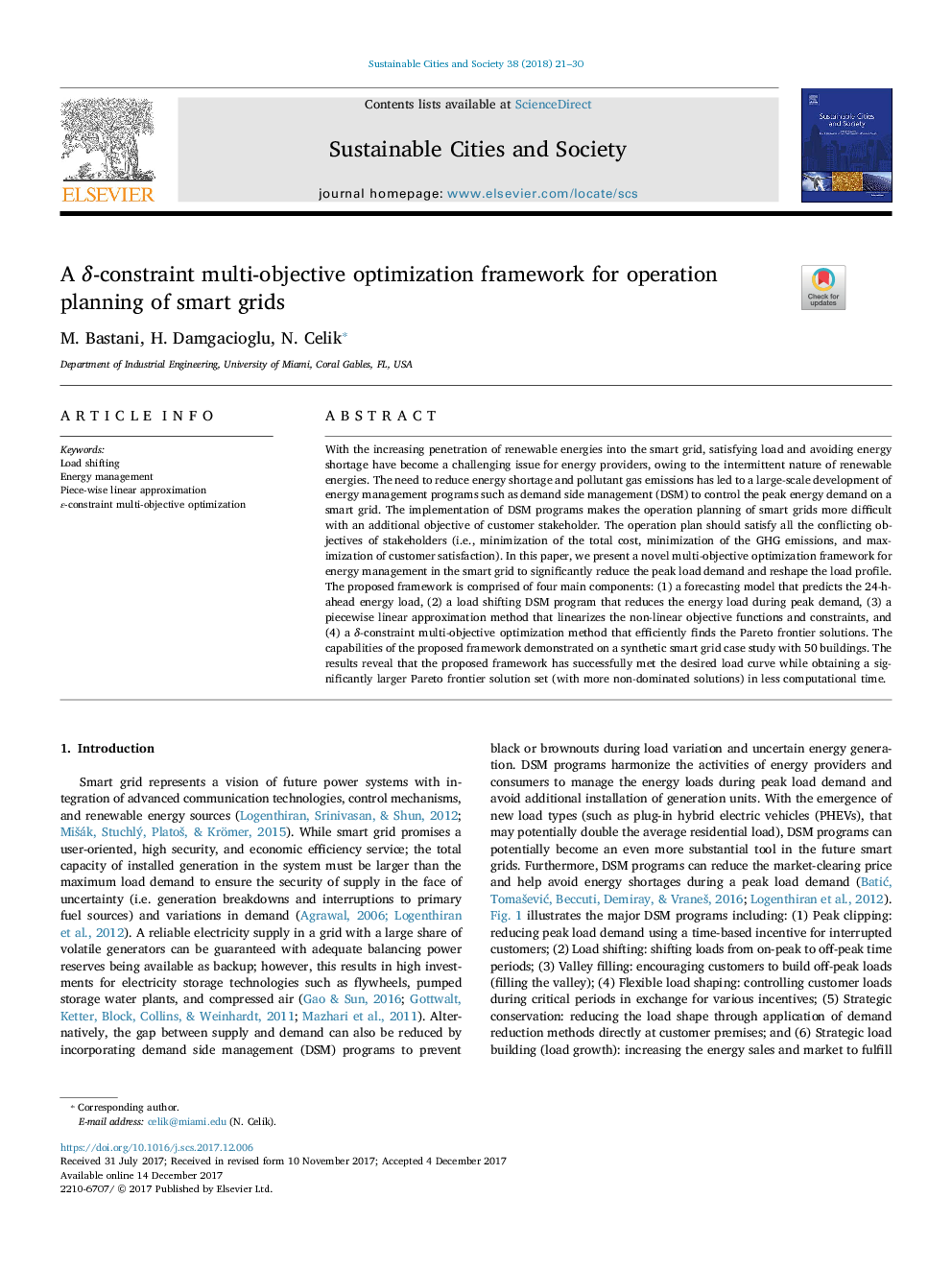ترجمه فارسی عنوان مقاله
یک چارچوب بهینه سازی چند هدفه محدود برای برنامه ریزی عملیات شبکه های هوشمند
عنوان انگلیسی
A δ-constraint multi-objective optimization framework for operation planning of smart grids
| کد مقاله | سال انتشار | تعداد صفحات مقاله انگلیسی |
|---|---|---|
| 142073 | 2018 | 10 صفحه PDF |
منبع

Publisher : Elsevier - Science Direct (الزویر - ساینس دایرکت)
Journal : Sustainable Cities and Society, Volume 38, April 2018, Pages 21-30
ترجمه کلمات کلیدی
تغییر بار، مدیریت انرژی، تقریبا خطی قطعی، بهینه سازی چند هدف ایده محدود،
کلمات کلیدی انگلیسی
Load shifting; Energy management; Piece-wise linear approximation; ε-constraint multi-objective optimization;

